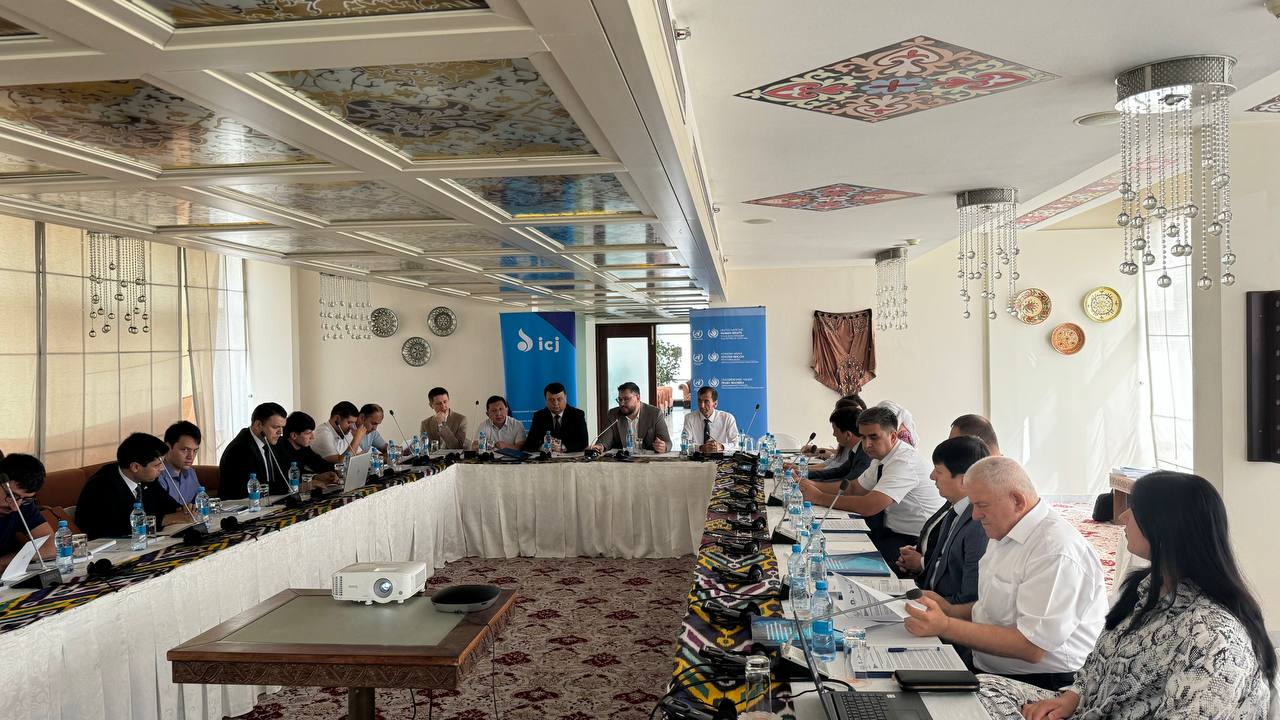On 31 July 2024, the International Commission of Jurists (ICJ), the Office of the United Nations High Commissioner for Human Rights (OHCHR) Regional Office for Central Asia (ROCA), the Supreme Court of the Republic of Tajikistan and the Coalition against Torture and Impunity of Tajikistan organized a roundtable discussion on enhancing protection against arbitrary detention and address pressing concerns related to criminal procedure and human rights safeguards and the rule of law.
The roundtable, titled “Freedom from arbitrary detention under the ICCPR,” featured a diverse group of participants, including judges of the Supreme Court of Tajikistan, representatives of the Ministry of Internal Affairs (MVD), the General Prosecutor’s Office, the Centre for Forensic Medicine, as well as international legal experts, civil society representatives and UN staff.
Discussions centred around the challenges and opportunities in improving the legal and institutional framework to prevent and guarantee protection against arbitrary detention and ill-treatment in Tajikistan. Key topics included existing legislative gaps, practical difficulties in enforcing procedural guarantees, and the importance of respecting international human rights law and standards, particularly those related to freedom from arbitrary detention.
The roundtable featured discussions on issues such as the procedure for authorizing arrests, the frequency of granting arrest warrants and ill-treatment in detention. Participants noted that alternative, less restrictive measures than detention pending trial, such as release on bail, are seldom used in Tajikistan. Under international human rights law, including the ICCPR, pursuant to the right to liberty and the presumption of innocence there is a presumption that people charged with a criminal offence will not be detained pending trial. As a result, pre-trial detention should be exceptional, and less restrictive measures pending trial should, instead, be the general rule. Pre-trial detention should only be used when the authorities demonstrate that it is necessary and proportionate to deprive the individuals concerned of their liberty pending trial, and that releasing them would create a substantial risk of flight, harm to others, evidence tampering or interference with the investigation, and that such concerns cannot be allayed by other means.
In light of this, participants stressed the importance of courts more actively considering alternatives to detention in line with international standards.
The participants also highlighted the role of international law and the decisions of UN human rights bodies in shaping national responses to arbitrary detention. They discussed the importance of adhering to international law to effectively address these challenges.
By bringing together national and international stakeholders, the roundtable provided a crucial platform for dialogue, knowledge exchange and the development of strategies to combat arbitrary detention and promote justice in Tajikistan.
Find the agenda of the event here.
Attachment: Briefing paper 31 July 2024





